Thomas Huxley Quotes
Most popular Thomas Huxley Quotes

Science is simply common sense at its best.

Science commits suicide when it adopts a creed.

The great end of life is not knowledge but action.

The birth of science was the death of superstition.

Living things have no inertia, and tend to no equilibrium.

Size is not grandeur, and territory does not make a nation.

Irrationally held truths may be more harmful than reasoned errors.
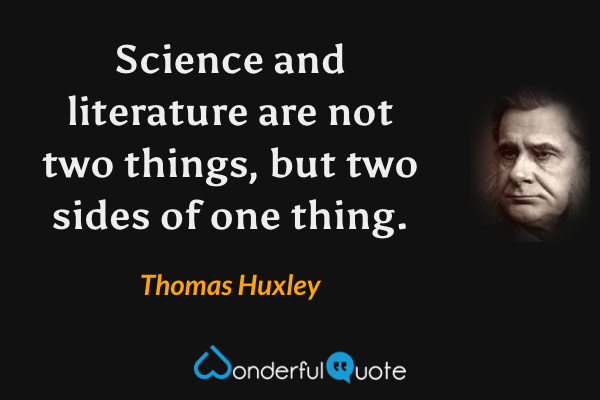
Science and literature are not two things, but two sides of one thing.

Try to learn something about everything and everything about something.

Time, whose tooth gnaws away everything else, is powerless against truth.
Logical consequences are the scarecrows of fools and the beacons of wise men.

There is the greatest practical benefit in making a few failures early in life.

In scientific work, those who refuse to go beyond fact rarely get as far as fact.

The great tragedy of Science — the slaying of a beautiful hypothesis by an ugly fact.

The great tragedy of science is the slaying of a beautiful hypothesis by an ugly fact.

Patience and tenacity of purpose are worth more than twice their weight of cleverness.
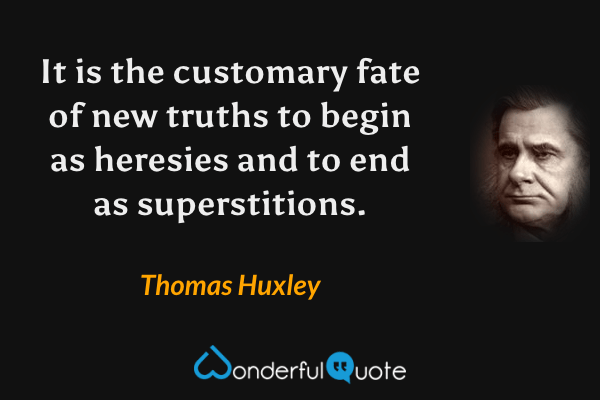
It is the customary fate of new truths to begin as heresies and to end as superstitions.
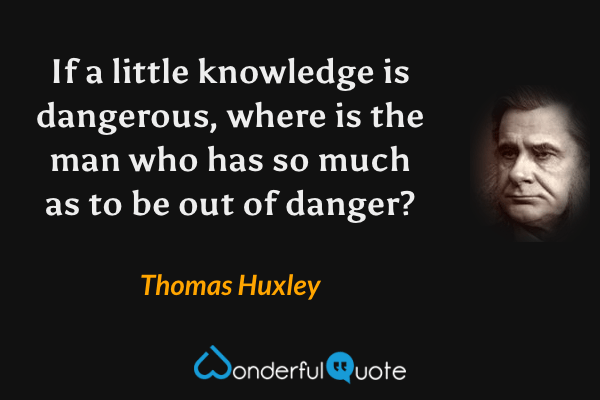
If a little knowledge is dangerous, where is the man who has so much as to be out of danger?

There is no greater mistake than the hasty conclusion that opinions are worthless because they are badly argued.
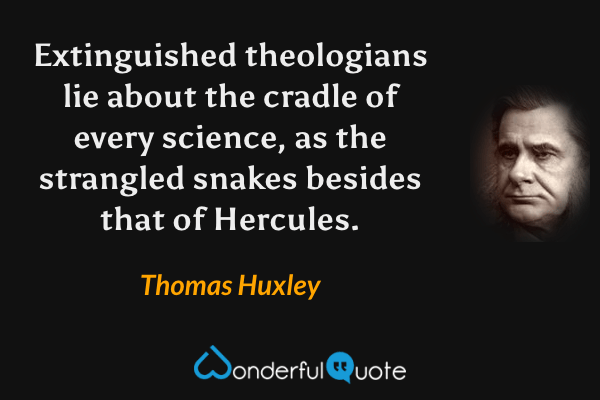
Extinguished theologians lie about the cradle of every science, as the strangled snakes besides that of Hercules.

Truly is has been said, that to a clear eye the smallest fact is a window through which the Infinite may be seen.

If individuality has no play, society does not advance; if individuality breaks out of all bounds, society perishes.

History warns us, however, that it is the customary fate of new truths to begin as heresies and to end as superstitions.

The chessboard is the world; the pieces are the phenomena of the universe; the rules of the game are what we call laws of nature.

For every man the world is as fresh as it was at the first day, and as full of untold novelties for he who has the eyes to see them.

In science, as in life, learning and knowledge are distinct, and the study of things, and not of books, is the source of the latter.

Of the few innocent pleasures left to men past middle life, the jamming of common sense down the throats of fools is perhaps the keenest.

The rung of a ladder was never meant to rest upon, but only to hold a man's foot long enough to enable him to put the other somewhat higher.

But the great tragedy of Science—the slaying of a beautiful hypothesis by an ugly fact—which is so constantly being enacted under the eyes of philosophers...

It is wrong for a man to say that he is certain of the objective truth of any proposition unless he can produce evidence which logically justifies that certainty.

The medieval university looked backwards; it professed to be a storehouse of old knowledge. The modern university looks forward, and is a factory of new knowledge.

The improver of natural science absolutely refuses to acknowledge authority, as such. For him, scepticism is the highest of duties: blind faith the one unpardonable sin.

Sit down before fact as a little child, be prepared to give up every preconceived notion, follow humbly wherever and to whatever abysses nature leads, or you shall learn nothing.
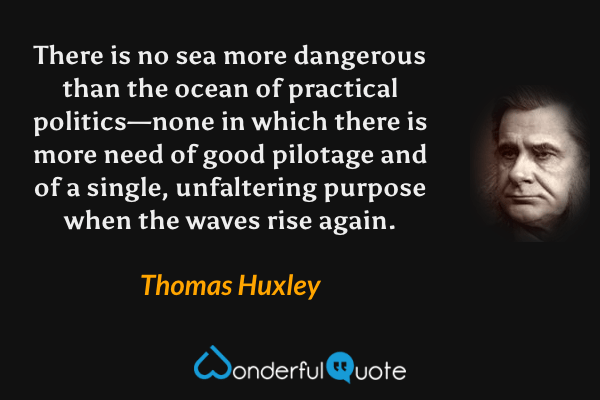
There is no sea more dangerous than the ocean of practical politics—none in which there is more need of good pilotage and of a single, unfaltering purpose when the waves rise again.

Life is like walking along a crowded street—there always seem to be fewer obstacles to getting along on the opposite pavement—and yet, if one crosses over, matters are rarely mended.
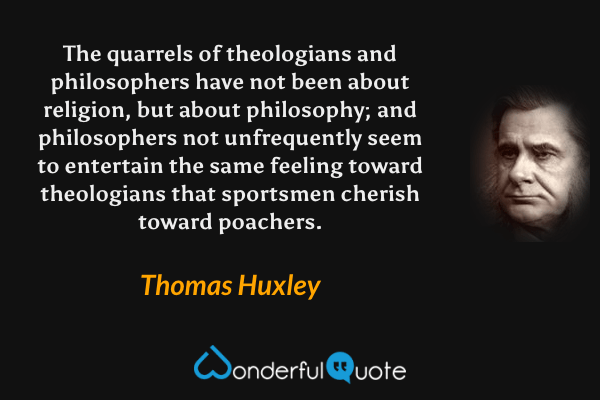
The quarrels of theologians and philosophers have not been about religion, but about philosophy; and philosophers not unfrequently seem to entertain the same feeling toward theologians that sportsmen cherish toward poachers.

No man is any the worse off because another acquires wealth by trade, or by the exercise of a profession; on the contrary, he cannot have acquired his wealth except by benefiting others to the extent of what they considered to be its value.
The great tragedy of Science—the slaying of a beautiful hypothesis by an ugly fact.
It is the customary fate of new truths, to begin as heresies, and to end as superstitions.


